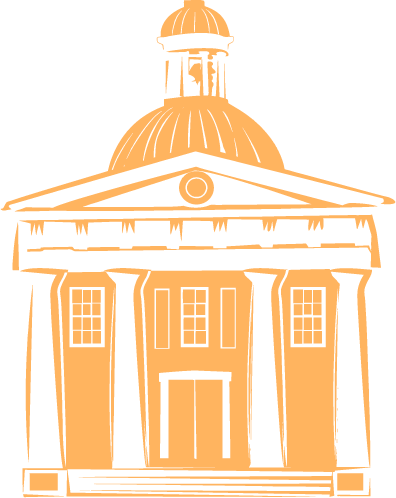The Neighborhood at a Glance
Known as “White House Hill” before the original college was built, the general boundaries of College Hill are the Expressway, Kemper Street Railroad Station, and Old City Cemetery. It adjoins Federal and Diamond Hills, making it the largest of the seven hills.
The original Lynchburg College, c.1855
What College?
College Hill has no college today. Named for the first Lynchburg College (no connection to the current college), which only lasted from 1855 to 1861, this military college stood near Eleventh and Wise Streets. When the Civil War erupted in 1861, most of the faculty and students joined the Confederate army, and the school closed. Remnants of the building became residences in the late 1800’s.
Harlem Renaissance Poet Anne Spencer (1882-1975)
Anne Spencer's home and garden are located on Pierce Street.
Only the second African American to be included in Norton's Anthology of Modern Poetry (1973), Anne Spencer was a poet, civil rights activist, librarian, and avid gardener. During the era of Jim Crow she entertained notables including George Washington Carver, W.E.B. Dubois, and Langston Hughes. She helped found the Lynchburg chapter of the NAACP and served as the librarian at Dunbar High School for over 20 years. Her house and garden are Virginia Historic Landmarks on the National Register of Historic Places.
Lame Lion of Lynchburg
Bronze statue of John Warwick Daniel, erected 1913
College Hill is home to one of the few examples of statuary in Lynchburg. John Warwick Daniel suffered a major leg wound during the Civil War and was known as the "Lame Lion of Lynchburg" when he served in the Virginia and U.S. Senates. The triangle of land bounded by Park Avenue, Floyd Street, and Ninth Street where Daniel’s bronze statue was erected in 1913 is one of the highest points in the city.
A Number of Fine Homes
1018 Wise Street, built in 1849
A number of fine homes were built in College Hill between 1815 and 1845, including the home of Confederate General Robert Rodes. Christopher Lynch, son of town founder John Lynch, operated a brick yard at Seventh and Jackson Streets. His brick was almost surely used to build many of the early houses on the hill.





